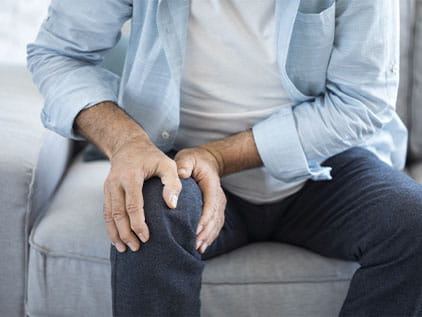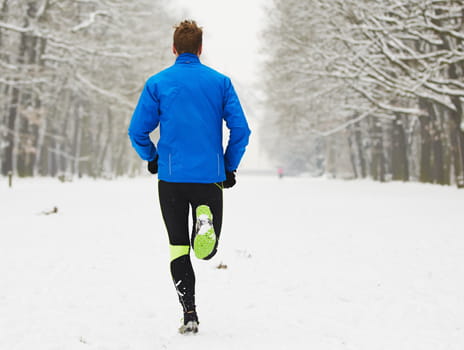November 22, 2020
Cold weather doesn't have to put a freeze on your outdoor exercise program. If you're careful, you can still work out when the weather turns chilly. These tips will help you stay in shape safely this season.
Wear the right clothing
According to the American College of Sports Medicine, the type of clothing you wear is critical. Although a double-thick cotton sweatshirt may seem like a good choice, it doesn't insulate nearly as well as synthetic fabrics like lightweight polyester or polypropylene.
It’s also important not to overdress. You can overheat even in below-freezing temperatures. If you dress too warmly, you'll sweat a lot. Then, when cold winds hit, perspiration will rapidly evaporate, causing chills. You want to limit perspiration and keep it away from both your skin and the outside air.
Add layers
Layering your clothing helps regulate your body temperature. Your first layer should be a synthetic material, like polypropylene, to allow sweat to pass through the fabric and away from your body. The second layer should be wool, polyester or fleece for primary insulation. The third layer should be chosen for its ability to keep the cold air, wind and rain out. This layer should be something lightweight and artificial. If you get too warm, you can always remove a layer.
Always warm up before exercise
Warming up before exercising is always important, but it is even more important in cold weather. Dynamic stretches, such as leg swings, walking lunges and arm swings, can help you safely prepare for exercise. If the weather is particularly cold, it's probably too cold for you to exercise outdoors.
Protect yourself
You can lose a tremendous amount of heat through your uncovered head, so always wear a hat, cap or hood. You should also protect your feet, as they get cold first. Wear the right boots or shoes. Insulate them with warm socks and keep them dry.
Because of the large surface area to volume ratio, your hands are also more susceptible to cold. Gloves or mittens should be worn before the hands become cold. We recommend wearing mittens over gloves because the fingers can warm each other and decrease the exposed surface area.
Don't forget to hydrate
If you can see your breath, you're seeing moisture leave your body. So remember to drink plenty of fluids, particularly if the air is cold and dry. Drink water before you go outside, and always bring some with you. Avoid drinking alcohol, as it makes you lose heat.
Don't overdo it
Cold and exercise can cause stress on the body. That’s why it’s important to talk to your healthcare provider before you start a winter exercise program.
People who have diabetes, take certain medications or are older adults are at greater risk for their body temperature to drop in cold weather. Cold air can also be a trigger for people with asthma.

Same-day care for orthopedic injuries
We offer walk-in care in Overland Park for acute orthopedic injuries, including sports-related injuries, such as fractures, strains and sprains. Walk-in hours are weekdays 8 a.m.-7 p.m. and Saturdays 8 a.m.-2 p.m.





